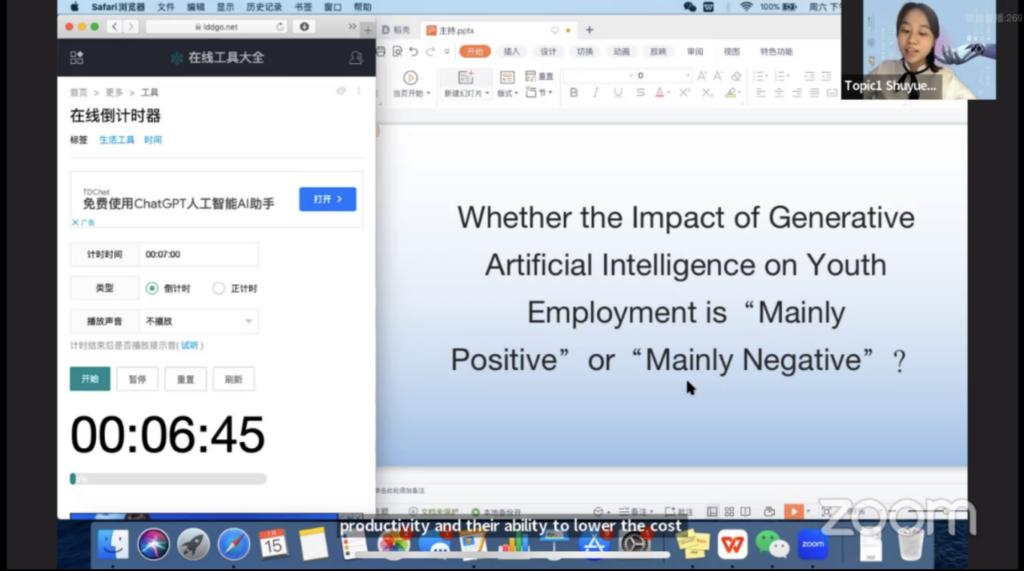The Second “Data and Youth” Forum: How Will Generative AI Shape the Future?, initiated by the United Nations University Institute in Macau (UNU Macau) with the support of the Institute for AI International Governance of Tsinghua University (I-AIIG), was successfully held on July 15, 2023. The Forum received more than 5,000 views.
With the theme of “Data and Youth”, this forum adhered to the spirits of youth leadership and youth participation, and centered on two topics, namely, technology and application of generative AI and legal risks and policy concerns of generative AI. Outstanding young representatives from academic, artistic, and industrial circles are invited to this forum to share their experience and achievements in generative AI scientific research and practices.
Yu Huisong, an undergraduate student from the Department of Artificial Intelligence and Automation at Wuhan University, gave a speech titled “AI in Generative Creativity: How Can Artificial Intelligence Help Us Evolve in Creation and Expressing Ideas, and Lead the Future?” He discussed the current development and challenges of natural language processing (NLP) and AI language models, and also emphasized the importance of understanding underlying biases in language models and the necessity of developing AI responsibly. Yu introduced the potential of AI in improving language translation and cross-lingual communication.
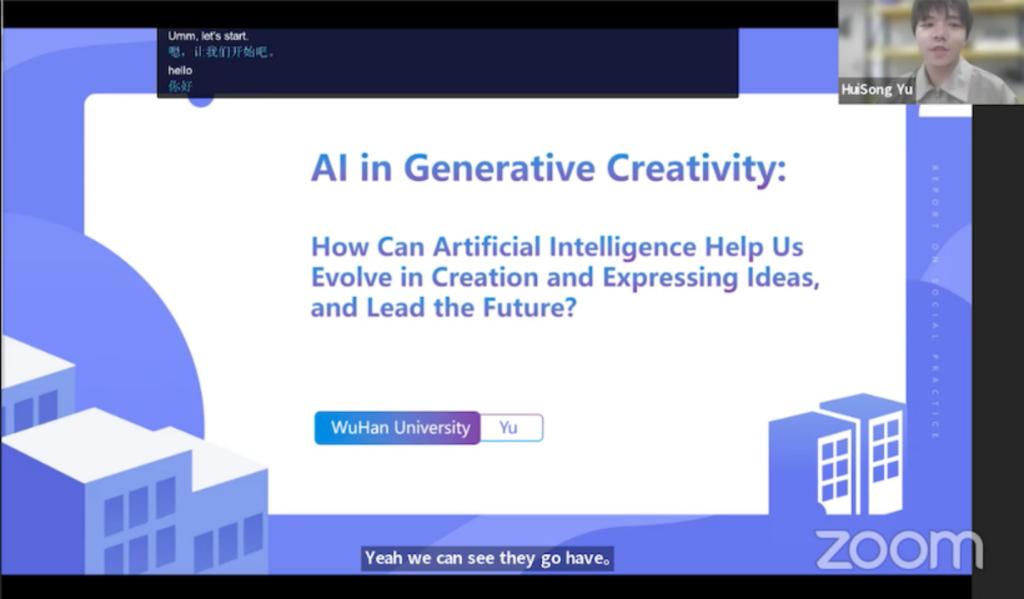
Zhang Chaoning, Assistant Professor of Kyung Hee University in the Republic of Korea, shared the progress in the development of AI models and their applications in various fields such as computer vision and NLP in his speech titled “Large Model for Computer Vision in AIGC Era.” He demonstrated the progress made in AI-generated art and its potential influence on the artistic circles, and explained the concept of joint embedding and its role in deep learning research.
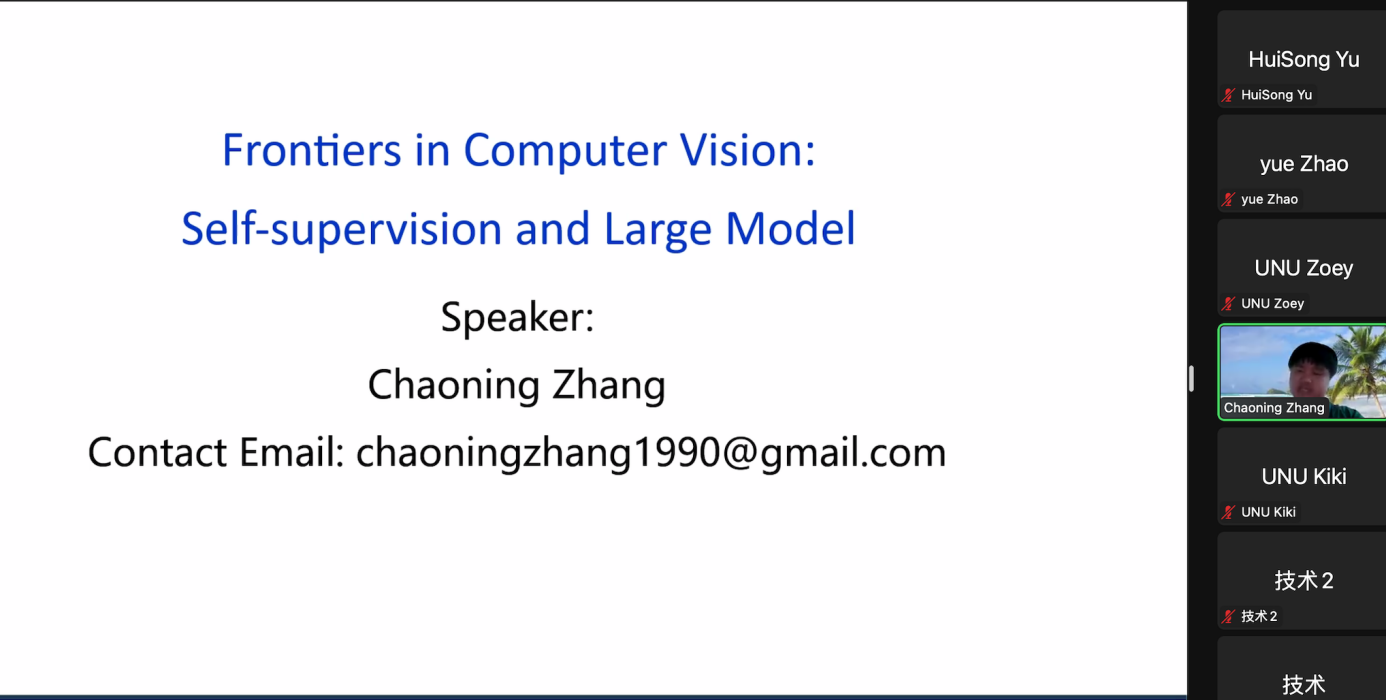
Mou Ruidi, Artist and Post-doctorate of the Future Laboratory at Tsinghua University, pointed out in his speech titled “We Do Not Think It Is A Real Problem Yet: A Perspective about AI-generative Art, Metaverse & Human Artworks”, that large models including ChatGPT will not affect art or its related creativity and it is impossible to repeatedly re-imagine an action based on the current AI development.
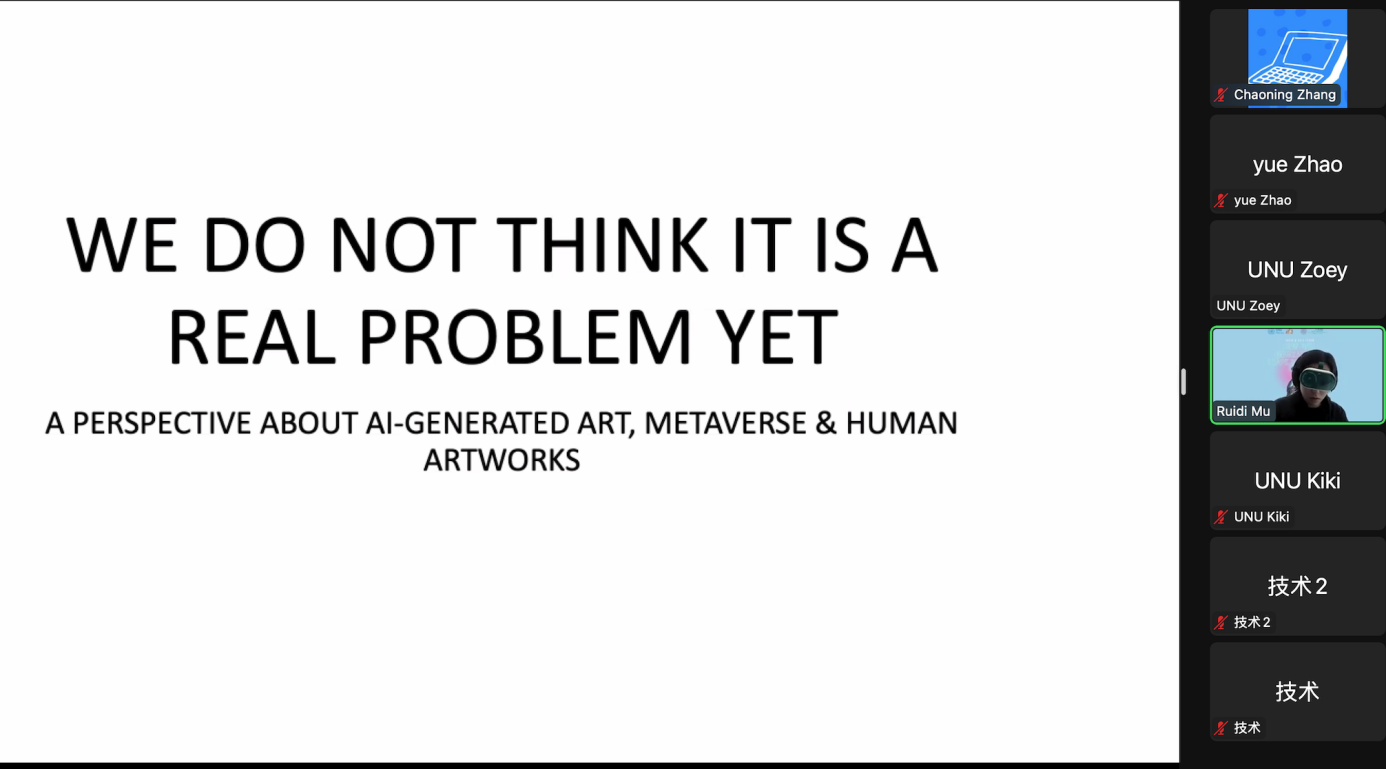
Lu Jiajun, founder and CEO of Akool, delivered his speech titled “Personalized Generative AI, An Akool Story.” He introduced the history of content development and then expounded the advantages of the generative models and shared opinions on how to achieve content prosperity in the future AI era, such as integrating AI into various other industries like marketing and advertising.
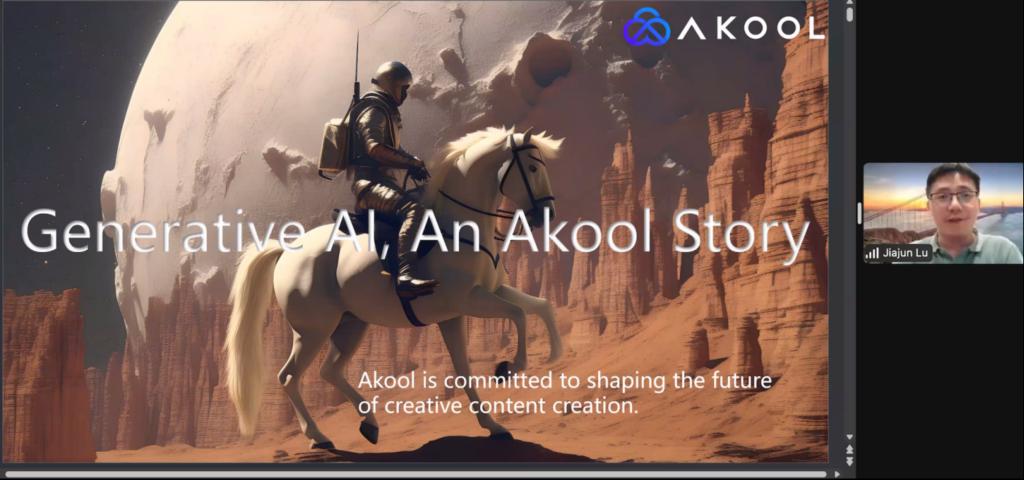
Kuria Joel, Visiting Research Assistant at the UNU Macau, elaborated on the impacts of AI on the society and culture, including the psychological impacts and the impact on communication and interpersonal relationships in his speech “Effects of AI on Social Interactions.”
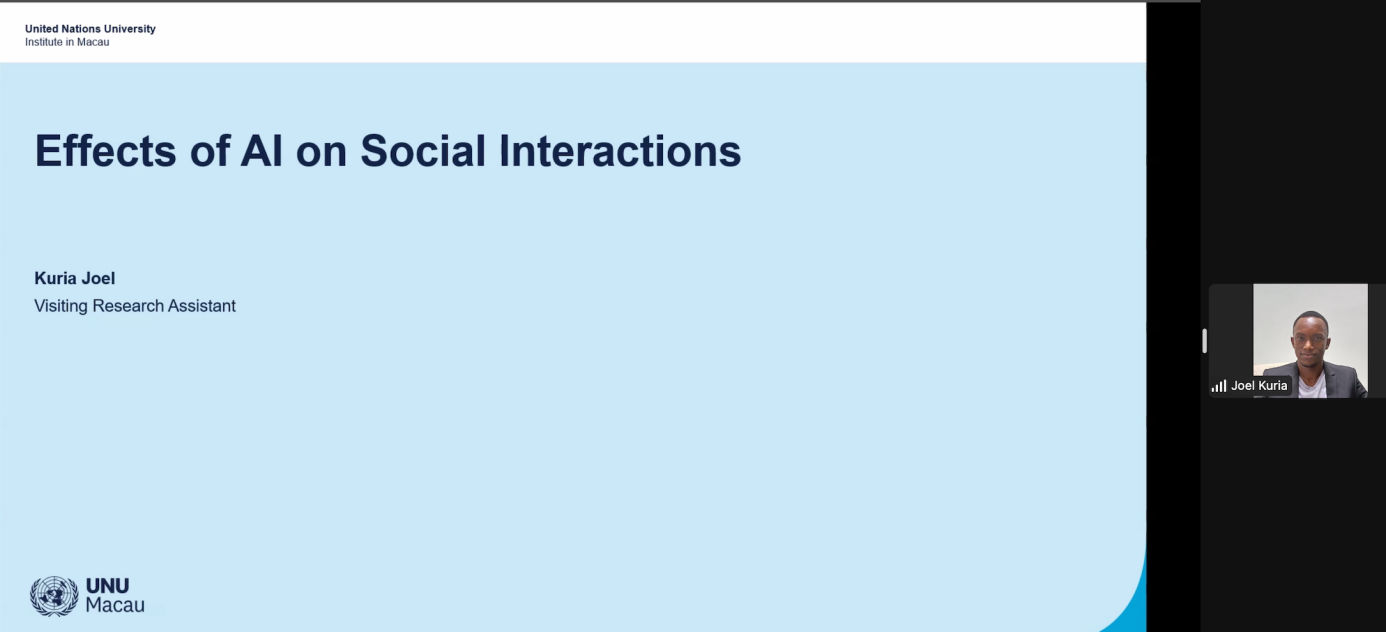
Li Zhuoyang, a graduate of the University of Washington, delivered a speech titled “The Dilemma of Applying AI to Social Sciences.” He talked about the dilemmas such as black-box models, lack of training data and dehumanization in the AI development and put forward corresponding solutions. Li also pointed out the future development trends on related issues.
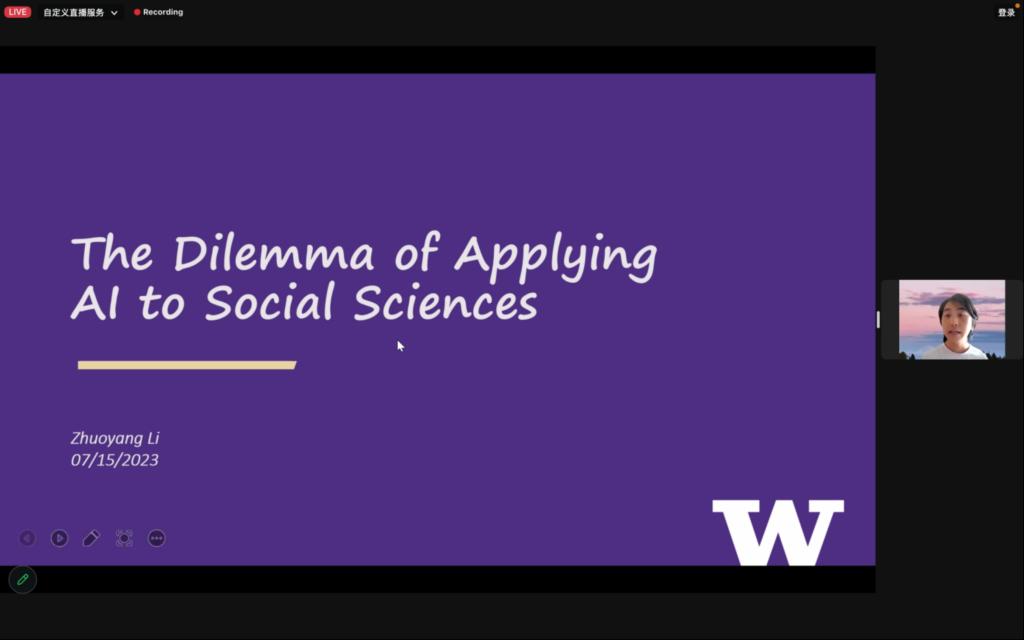
Zhang Yang, Lecturer at the School of Law at Wuhan University, with the theme of “The Robo-Financial Advisor: Opportunities, Risks and Its Regulation”, explained the AI development in finance and the types of today’s intelligent investment advisors and related advantages and disadvantages. He pointed out that legal measures can be taken from three aspects, namely, regulatory sandbox, clarification of the responsible parties, and reduction of legal barriers.
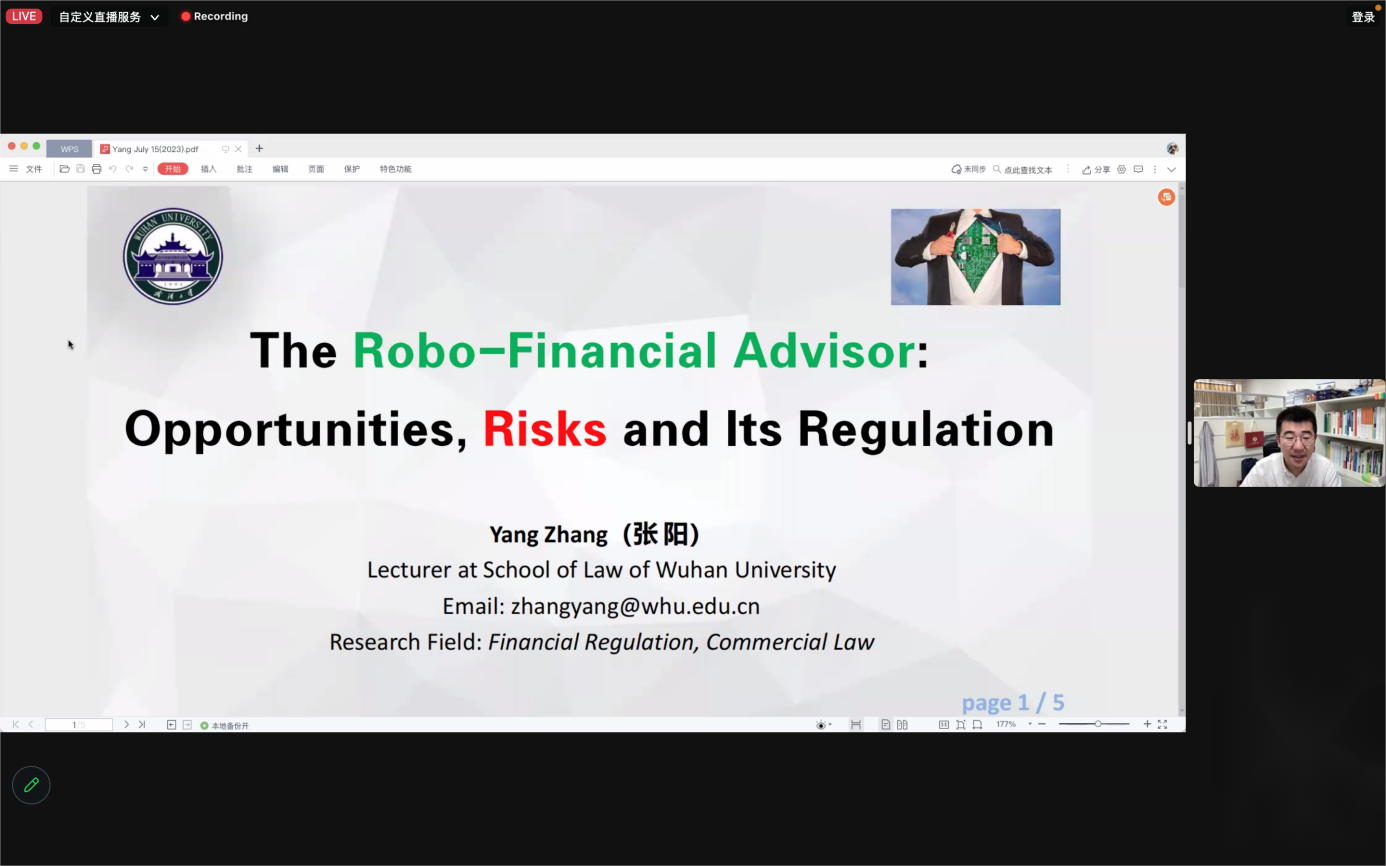
Du Li, Associate Professor at the Faculty of Law of the University of Macau, made a speech titled “Generative AI in Assisted Reproduction: Legal Issues and Beyond.” He shared views on the applications of generative AI in healthcare, such as AI-based embryo-selecting system to boost IVF success in the process of assisted reproduction, and introduced the legal and ethical issues accompanying this technology, including privacy concerns and patient confidentiality principles. Du pointed out that serious considerations shall be given to the legal and social risks of AI applications and efforts shall be made to supervise AI in an effective and timely manner.
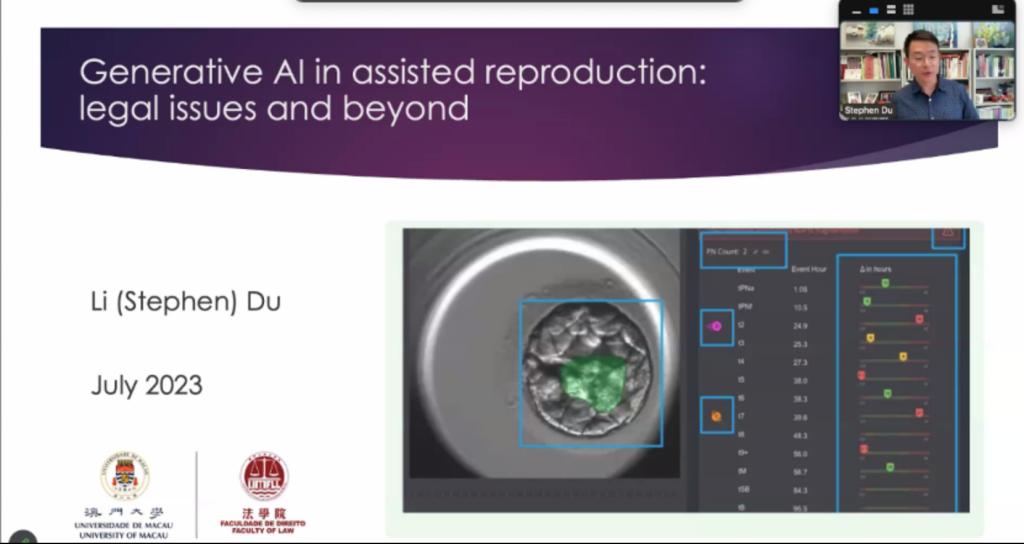
Rostam J. Neuwirth, Professor of the Faculty of Law of the University of Macau, pointed out that the integration of AI and other innovative technologies has brought about opportunities but also great risks, especially the brain technologies that can manipulate human minds and may infringe on human cognition and freedom of thoughts in his speech titled “Subliminal Artificial Intelligence and the Law: Dystopian and Utopian Scenarios.” Given the possibility that future technological innovations may lead to technological manipulation of human minds and behaviors, governments around the world, the European Commission, the United Nations Educational, Scientific and Cultural Organization, and other relevant organs should conduct regulations and issue recommendations on AI ethics.
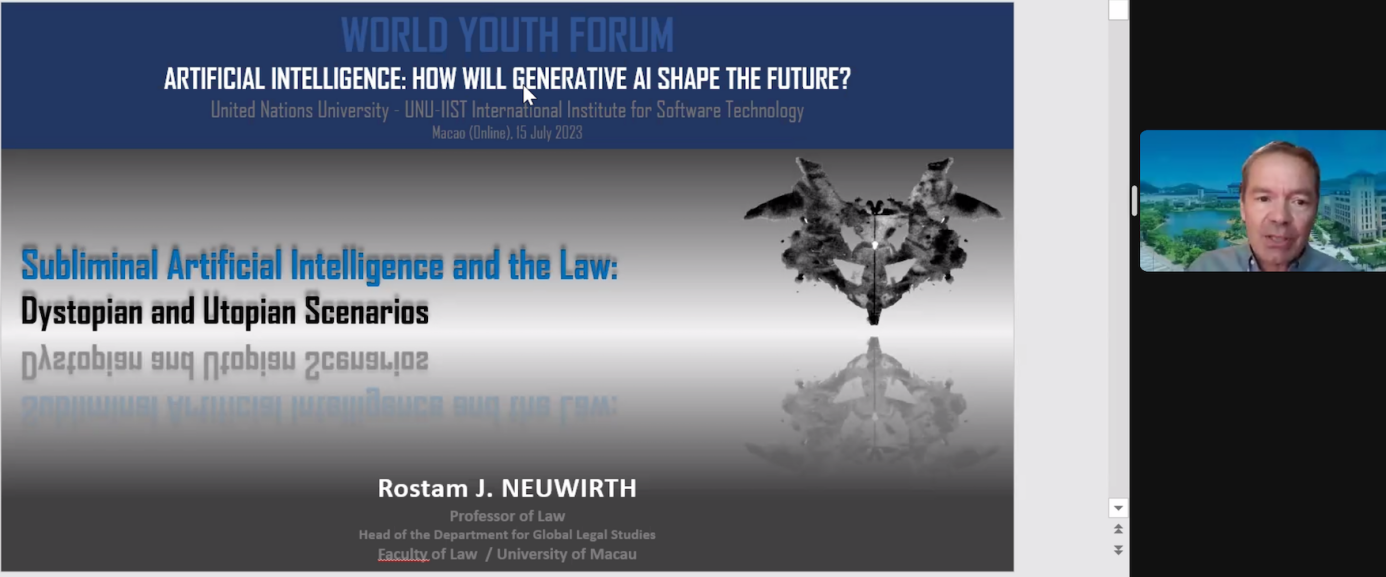
Following the lectures in the afternoon, the English debates specially designed for this forum were successfully held. The first debate started with the topic: “Whether the Impact of Generative Artificial Intelligence on Youth Employment is ‘Mainly Positive’ or ‘Mainly Negative’?” Focusing on exploring the positive and negative impacts of AI on employment, it aims to provide ideas on how laborers should adapt to technological changes in the era of AI and how to view the relationship between technology and human beings. In the second debate titled “Should Universities Prohibit or Allow Students to Use Generative Artificial Intelligence Tools Such as ChatGPT?” participants discussed the question of whether to regard AI tools as optimized “search engines” for learning efficiency improvement or “poisons” that encourage students’ inertia and even cheating behaviors on campuses. A total of 16 outstanding young students from Tsinghua University, Hong Kong University of Science and Technology, Wuhan University and Nankai University were invited to participate in the debates and have face-to-face dialogues on the above hot topics to inspire new ideas. It is hoped that these debates can provide new inspirations on how individuals can better adapt to the wave of AI while stimulating young people to think and explore more.
